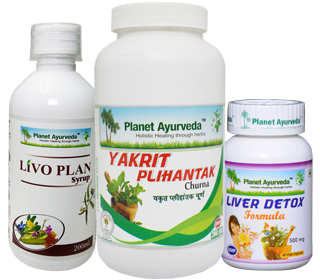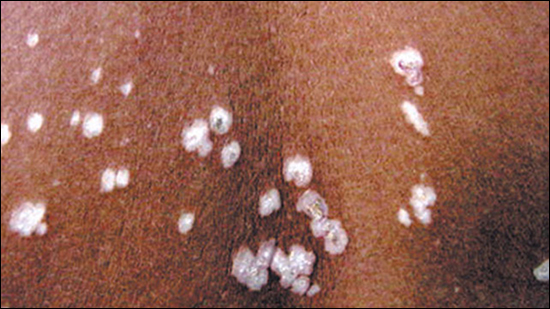The Liver is the second largest organ of the human body whose weight is approximately 1.6 kg.
Some Of The Main Functions Of Liver Are:
- It metabolizes important proteins, fats and carbohydrates.
- It helps in producing and clearing cholesterol in the body.
- The liver secretes blood clotting factors which helps in stopping the excessive blood flow during a cut or any injury.
- It also secretes bile. Bile helps in the digestion of fats and fat soluble vitamins such as A, D, E and K.
- It stores iron, copper and Vitamins such as A, D, E, K and B12.
- The liver cleanses blood by eliminating harmful wastes, drugs and toxic substances from it.
WHAT ARE THE COMMON DISORDERS THAT AFFECT LIVER?
Disorders that affect liver are Hepatitis (Inflammation of the liver), Cirrhosis (scarring), fatty liver and cancer. Common causes of liver disorders are metabolism, hereditary, virus infection such as Hepatitis A, B, C, D and E, intake of alcohol and drugs.
WHAT IS FATTY LIVER?
The normal liver has 5% fat only. When the amount of fat increases by 10%, then healthy liver tissues gets converted into fatty tissues. This disorder is known as fatty liver or steatosis. In other words, this condition can be described as liver that sucks fat.
WHAT ARE THE CAUSES OF FATTY LIVER?
- Excessive intake of alcohol
- Overweight
- High blood cholesterol
- Diabetes Mellitus
WHAT IS NON-ALCOHOLIC FATTY LIVER DISEASE (NAFLD)?
Fatty Liver Has Two Basic Types:
- Persons who have more alcohol intake, the fatty liver reaches the first stage of the disease, which gradually leads to cirrhosis if the alcohol intake is continued.
- Non-Alcoholic Fatty Liver Disease (NAFLD) is a term used to describe the fat deposition in those patients who take alcohol in smaller quantities or do not consume alcohol at all.

WHAT IS NASH?
Due to the deposition of fats in the patients suffering from NAFLD, there is an inflammation and necrosis (death of tissues of the liver). The presence of dead tissues and inflammation lead to a chronic disorder known as Non Alcoholic Steato Hepatitis (NASH). The word Steato means fat and Hepatitis means inflammation of the liver. Patients who are suffering from NASH are at the risk of developing cirrhosis.
NAFLD AND NASH -- FACTS AND FIGURES
- In India, the incidence of NAFLD is commonly seen in obese, diabetes or prediabetic people.
- 80% of the patients suffering from NAFLD are obese.
- It affects 40-70% of the patients suffering with diabetes.
- In normal children, NAFLD disease has increased up to 3-10% in the last 10 years, and increases up to 8-80% in overweight/obese children.
- Nearly 2-3% thin and 15-20% obese people have NASH.
WHAT ARE THE RISK FACTORS ASSOCIATED WITH NAFLD?
The Risk Factors Associated With NAFLD Are:
- Obesity
- Type 2 diabetes
- Age: It mostly occurs in the persons above the age of 50 years. It is most commonly seen in men.
- Hypertension (High Blood Pressure)
- High levels of cholesterol or triglycerides in the blood.
WHAT ARE THE SYMPTOMS OF NAFLD?
There are no specific signs and symptoms of NAFLD. But, when the disease develops, it causes pain and discomfort in the upper part of the abdomen and fatigue.
HOW NAFLD IS DIAGNOSED?
Following Are The Tests That Are Used For The Diagnosis Of NAFLD:
- LFT: It is a blood test which measures the concentrations of various enzymes and proteins in the blood which are produced by the liver. Patients suffering from NAFLD have elevated levels of liver enzymes.
- Imaging Tests: Imaging tests such as ultrasound, Computed Tomography (CT) scan or Magnetic Resonance Imaging (MRI).
- Biopsy: A liver biopsy is a procedure in which a small needle is inserted into the liver to collect a tissue sample. Liver biopsy is done to differentiate between NASH and fatty liver.
WHAT ARE THE DISORDERS AND COMPLICATIONS ASSOCIATED WITH NASH?
Patients suffering from NASH have higher risks of developing Type 2 diabetes, heart disorders or stroke.
WHAT ARE THE STEPS TO PREVENT NAFLD?
The change in lifestyle is the first step towards the prevention of NAFLD.
- Maintain a healthy weight.
- Choose a healthy diet.
- Be regular with your physical exercises.
- Don't take any medicine without physician's consultation.
- Intake of alcohol should be under control.
- Quit smoking.
Modern treatment for liver disorders include the prescription of drugs but currently available drugs have more systemic toxicity therefore, physicians hesitate to administer these drugs for long term use.
According to modern medicine, liver transplantation is one of the options for chronic liver disorders but this treatment option bears several risks and is unaffordable for most of the patients in many countries, particularly in India. Further, liver transplant is a complex procedure as it requires sophisticated infrastructure, expensive drugs and prolonged stays in ICUs.
WHAT IS THE AYURVEDIC PERSPECTIVE ON LIVER DISORDERS?
In Ayruveda, The liver is considered as a well known organ. It is known as "Yakrit". The word "Yakrit" is made from two words: Yat + Krit. "Yat" means conversion and "Krit" means to do. Yakrit is a site of Raktdhatu where blood is stored. In Ayurveda, there are many herbs and their extracts that have been shown to possess hepato-protective activities. These herbs have biochemical active components that protect the liver from oxidative stress, promote virus elimination, block fibrogenesis, anti-inflammatory, immune-modulating, liver generating properties. Traditional Indian Medicinal system known as Ayurveda has generated extensive empirical knowledge and treated various complicated disorders since ages.
NAFLD can be successfully treated with the help of herbs and herbal remedies.
WHAT IS THE TREATMENT OF NAFLD BY PLANET AYURVEDA?
Planet Ayurveda offers effective herbal remedies for the treatment of NAFLD. These remedies are:
- Yakrit Plihantak Churna
- Livoplan Syrup
- Liver Detox Formula
Fatty Liver Care Pack
1. Yakrit Plihantak Churna
This is a herbal powder made from the wonderful herbs like Bhumiamla (Phyllanthus niruri), Katuki (Picrorhiza kurroa), Makoy (Solanum indicum), Punarnava (Boerhavia diffusa), Kalmegh (Andrographis paniculata), Kaasni (Cichorium intybus), Sharpunkha (Tephrosia purpurea) and Bhringraj (Eclipta alba). This is very useful in all the liver anomalies. This herbal powder helps in the treatment of liver cirrhosis, fatty liver, spleenomegaly, hepatitis B, etc.
Dosage: 1 teaspoonful twice a day before meals with warm water or decoction method.
2. Livoplan Syrup
This is a herbal syrup that contains herbs such as Bhringraj (Eclipta alba), Sharpunkha (Tephrosia purpurea), Kalmegh (Andrographis paniculata), Shyonak (Oroxylum indicum), Rohitaka (Tecomella undulata), Bhumiamla (Phyllanthus niruri), Patol (Trichosanthes diocia), Kasni (Cichorium intybus), etc. These herbs regenerate the liver cells and protect the liver from toxins. It eliminates the toxins from the liver and provides a healthy liver function.
Dosage: 2 tsp twice a day after meals.
3. Liver Detox Formula
Dosage: 1 capsule twice a day after meals with warm water.




